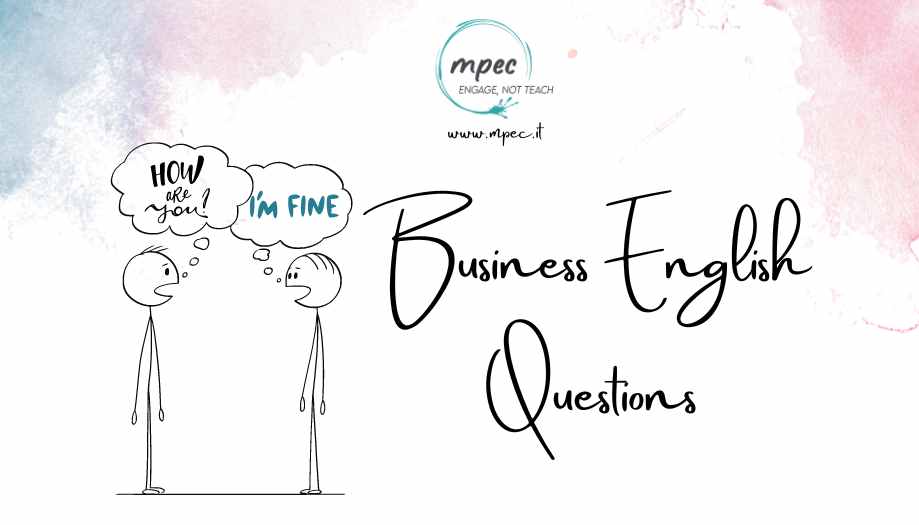Mastering the art of asking questions in English, especially within a business context, is a vital skill for non-native speakers aiming to excel in the global marketplace. This article provides a comprehensive overview of the different types of interrogative forms in English, focusing on their application in business communication. From the basics of yes/no questions to the nuances of indirect questions and conditional structures, we’ve got you covered. Whether you’re participating in meetings, negotiating with partners, or crafting emails, the ability to ask the right questions is key to clarity, understanding, and success. Let’s embark on this journey to enhance your questioning skills in Business English.
Introduction
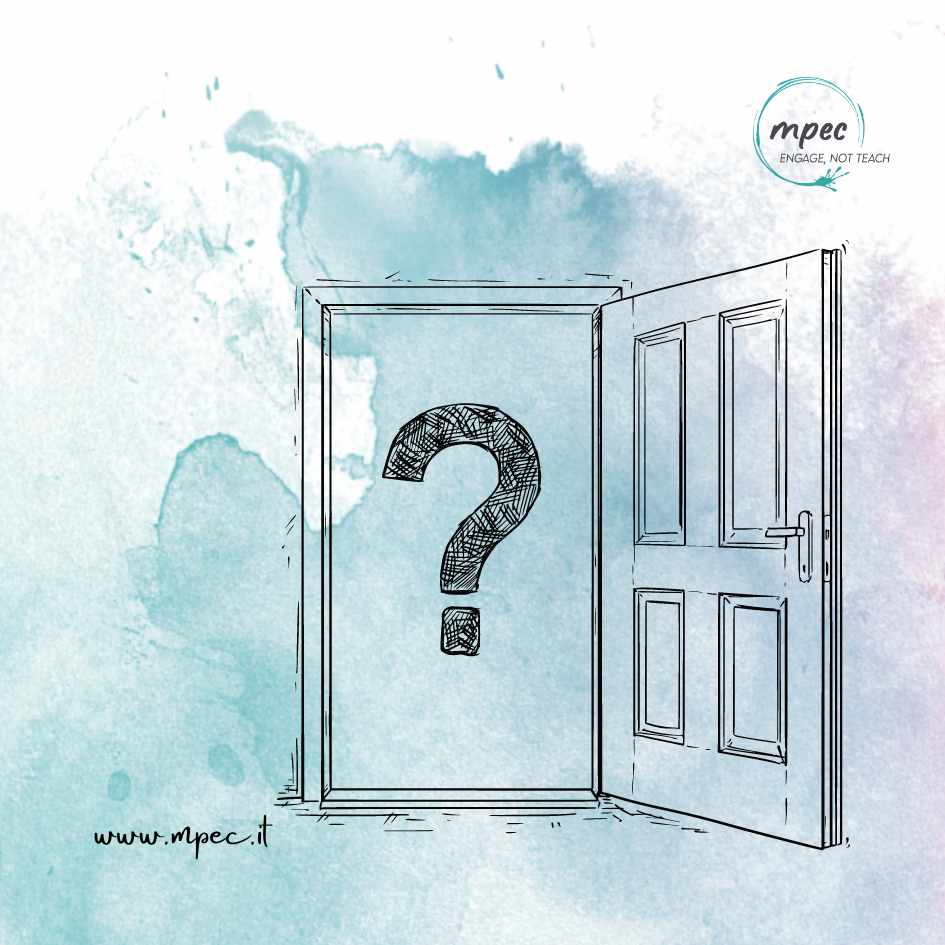
Understanding how to formulate questions in English, particularly within a business context, is essential for non-native speakers aiming to navigate the corporate world with confidence and fluency.
We will review the various types of interrogative forms, with a focus on their application in business English, providing you with the tools needed to communicate effectively in professional settings.
Are you ready?
6 Main Types Of Questions In English
1. Yes/No Questions
Yes/No questions are a fundamental aspect of English communication, designed to elicit a simple affirmative or negative response. In a business environment, these questions can facilitate swift decision-making and clarity.
Structure: Auxiliary verb (Do-Did-Does-Will etc) + Subject + Main verb
Examples:
- Present Simple: Do you have the latest sales figures?
- Past Simple: Did the meeting conclude on a positive note?
- Future Simple: Will you attend the upcoming industry conference?

Did I miss the deadline?
2. Wh- Questions

Why am I here?
Wh- questions seek more detailed information and are crucial for discussions, negotiations, and clarifications in business settings.
Structure: Wh- word + Auxiliary verb + Subject + Main verb
Examples:
- What: What strategies will we employ to enhance market share?
- Who: Who is responsible for leading the project team?
- Where: Where will the next board meeting be held?
- When: When do we expect the audit report?
- Why: Why are we revising the budget forecasts?
3. Tag Questions (or: Question Tags)
Tag questions are used to confirm information or seek agreement. They are particularly useful in meetings and collaborative discussions for affirming consensus or understanding.
Structure: Statement + Comma + Tag Hey, be careful: If the statement is affirmative, the tag is negative and vice versa!
Examples:
- The marketing proposal is ready for review, isn’t it? (Positive statement, negative tag)
- We’re meeting the client next Thursday, aren’t we? (Positive statement, negative tag)
- She’s not involved in this project, is she? (ne statement, negative tag)
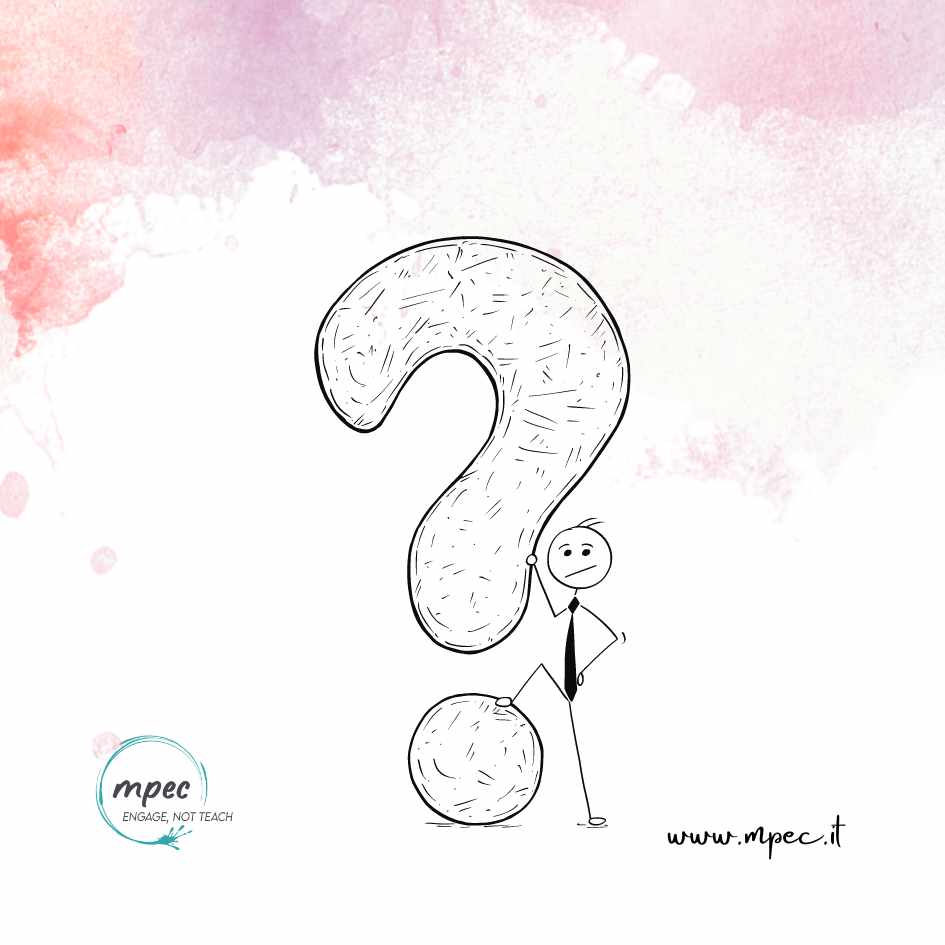
She hasn’t called back, has she?
4. Choice Questions
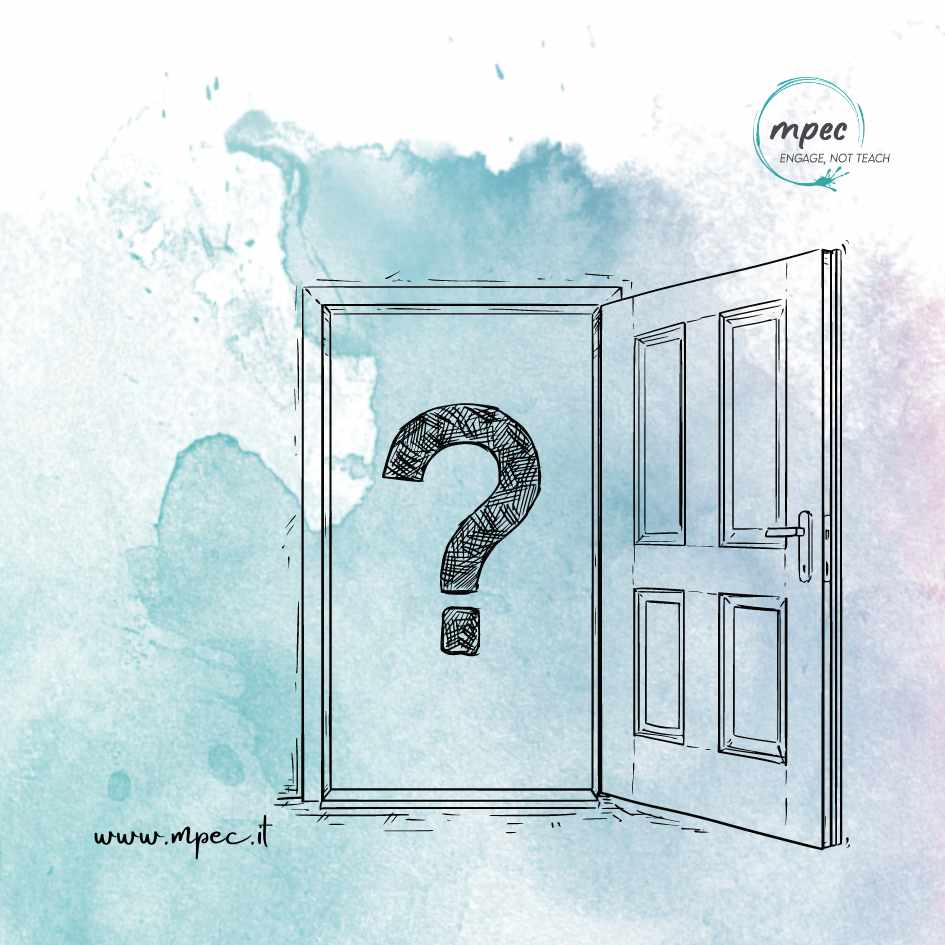
Should I stay or should I go?
Choice questions offer a set of alternatives, making them effective for decision-making processes, planning, and preference assessments in business interactions.
Structure: Question word (e.g., Do, Are) + Subject + Verb + Option 1 + or + Option 2?
Examples:
- Do you prefer an online meeting or a face-to-face discussion?
- Should we focus on product development or market expansion?
5. Hypothetical Questions
Hypothetical questions explore potential scenarios or outcomes, aiding in strategic planning and problem-solving discussions.
Structure: If + Subject + Past verb form, + would/could + Subject + Main verb
Examples:
- If we entered the Asian market, how would we address local competition?
- If the project deadline were extended, could we enhance the feature set?
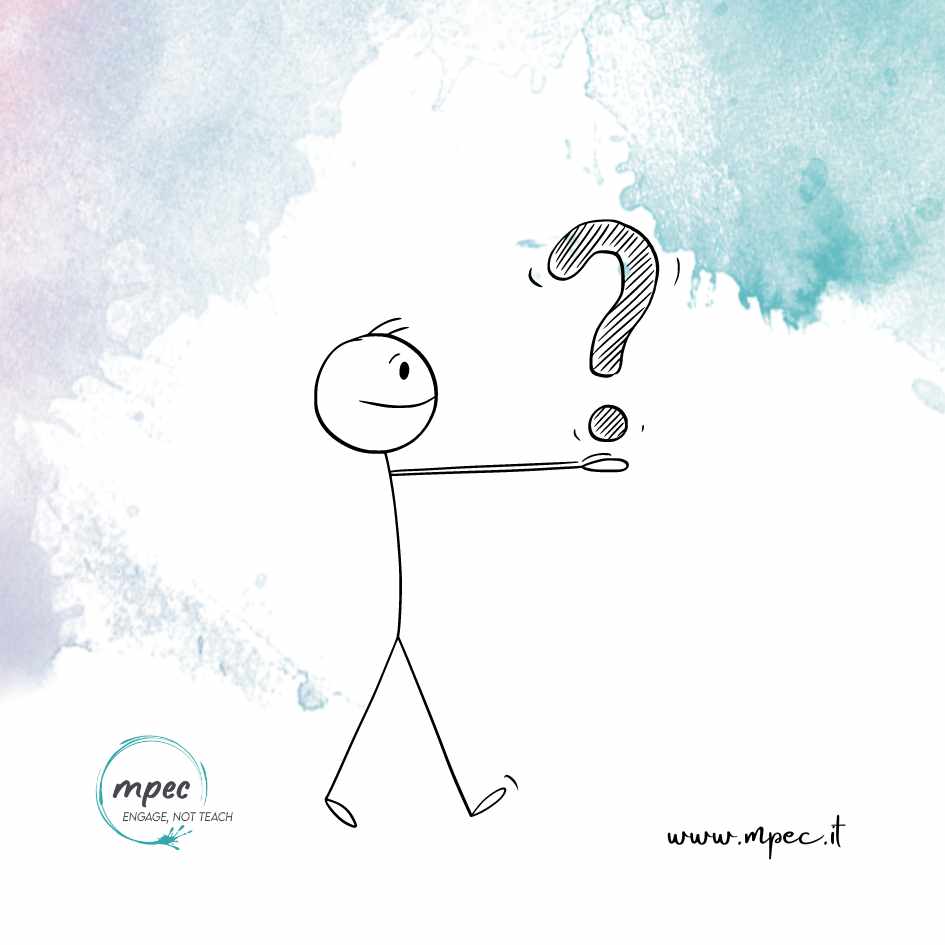

Would you say yes if I gave you a discount?
6. Indirect Questions



Do you know where the main entrance is?
Indirect questions are a polite way of asking for information, making them suitable for formal business contexts where directness might be perceived as too blunt.
Structure: Introductory phrase + Question word + Subject + Verb
Examples:
- Could you tell me what the quarterly targets are?
- I wonder if you could explain the rationale behind the recent policy change.
Key Grammar Points for Interrogative Forms
Understanding the nuances of English grammar is crucial for effective communication, especially when asking questions. Here’s an expanded look at the key grammar points related to interrogative forms, providing deeper insights into their use and function.
Auxiliary Verbs
Auxiliary verbs, also known as helping verbs, are essential in forming questions, particularly yes/no questions. They support the main verb and are used to form different tenses, moods, and voices of the verbs. The most common auxiliary verbs are “be,” “do,” and “have.”
- Be: Used for continuous (progressive) tenses and passive voice. Example: Are you working on the new project?
- Do: Used in simple present and past tenses when there is no other auxiliary. Example: Do you understand the guidelines?
- Have: Used for perfect tenses. Example: Have you completed the report?
Modal Verbs
Modal verbs express modality, allowing speakers to talk about necessity, possibility, permission, or ability. They are used before the base form of the main verb and do not change form according to the subject.
- Can/Could: Ability, possibility, or permission. Example: Can you access the database? Could you attend the meeting?
- Will/Would: Future possibility or willingness in the present or future; “would” is also used for polite requests. Example: Will you be presenting tomorrow? Would you mind sending the files?
- Shall/Should: Formal suggestion or offer (“shall”); obligation or recommendation (“should”). Example: Shall we proceed with the plan? You should check the contract.
- May/Might: Permission or possibility, with “might” indicating a lower probability. Example: May I leave early today? You might want to reconsider the proposal.
- Must: Necessity or obligation. Example: You must wear a suit to the meeting.
Question Words
Question words, or Wh- words along with “how,” are used to ask for specific information. Each word targets a different type of information.
- Who: Asks about people. Example: Who is leading the project?
- What: Asks about things, actions, or ideas. Example: What are the goals?
- When: Asks about time. Example: When is the deadline?
- Where: Asks about place. Example: Where will the conference be held?
- Why: Asks about reasons. Example: Why are we updating the software?
- Which: Asks to choose between options. Example: Which design do you prefer?
- How: Asks about manner, means, or degree. Example: How do you plan to implement the strategy?
Negation in Tag Questions
Tag questions are added to the end of statements to turn them into questions, often to confirm information or seek agreement. The tag is negated if the statement is affirmative, and vice versa.
- Affirmative Statement: You are coming to the meeting, aren’t you?
- Negative Statement: You aren’t coming to the meeting, are you?
The tag includes the same auxiliary or modal verb used in the statement. If the statement has no auxiliary, “do” is used in the tag.
Conditional Structures
Conditional structures are used to discuss potential situations and their outcomes, often forming the basis of hypothetical questions. They typically use “if” clauses followed by a result clause.
- First Conditional: Real possibility in the future. If + Present Simple, will + base verb. Example: If you finish the report, you will receive feedback.
- Second Conditional: Unreal possibility or hypothetical situation in the present or future. If + Past Simple, would + base verb. Example: If I were the manager, I would approve the budget.
- Third Conditional: Hypothetical situation in the past. If + Past Perfect, would have + past participle. Example: If we had known about the issue, we would have taken action sooner.
Each of these grammar points plays a crucial role in forming questions in English, allowing for a wide range of expressions to suit various contexts and levels of formality. Understanding and mastering these points can significantly enhance your ability to ask clear, precise, and appropriate questions in any situation.
#IngleseCommerciale #DomandeInInglese #PadronanzaDellInglese #ComunicazioneProfessionale #InglesePerAffari #DomandareCorrettamente #CompetenzeLinguistiche #BusinessGlobale #ChiedereCorrettamente #GrammaticaInglese #FormeInterrogative #ImparareLInglese #mpec #engagenotteach

